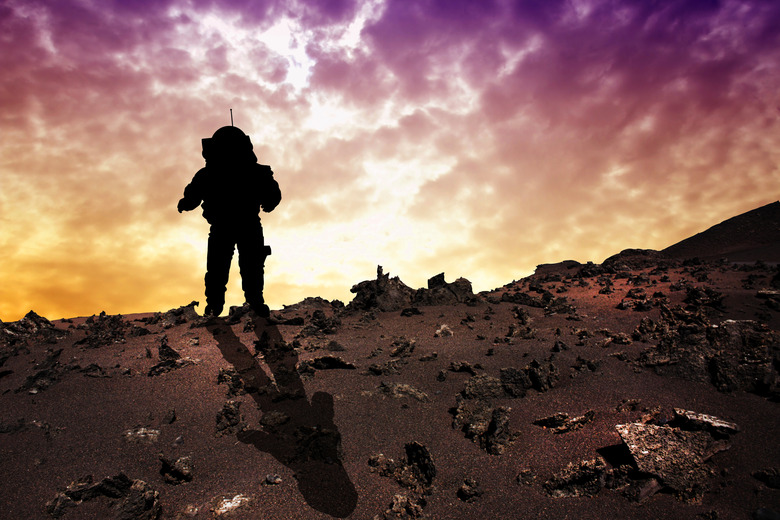Bad Things About Space Exploration
Though space can be a fun and exciting place to explore in science fiction, the real-life danger and expense merits serious consideration. Humans evolved in the relatively safe comforts of Earth, where air is abundant and radiation almost nonexistent – just the opposite of space. Getting to space is dangerous, as you need a ride on a giant rocket just to get there. And the expense of space exploration means only the richest countries can afford it, and even then only rarely.
Cost of Space Travel
Cost of Space Travel
One of the biggest criticisms against space exploration is the cost. According to the University of Florida, it costs around $500 million to launch a space shuttle. These expenses will only go up when considering longer-term space travel, such as manned explorations to Mars or Jupiter's moons. While new technology may certainly limit the inefficient costs involved in space exploration, many argue that it is still money that could be better spent on more pressing issues.
Risks: Known and Unknown
Risks: Known and Unknown
There is always the problem of unforeseen risk with space exploration. The space shuttle Challenger exploded during launch in 1986, killing seven astronauts, and the shuttle Colombia exploded during reentry in 2003, also killing seven. Radiation from the sun is a constant danger to astronauts, and there may be unforeseen risks when they are traveling far beyond the earth, exacerbated by the fact that there would be little hope of getting back home in time for help.
Justification for Space Travel
Justification for Space Travel
Tied in with the question of cost and risk of human life is the question of justification. Space exploration appeals to the human desire to learn about the universe; however, it does not have any straightforward, pragmatic application. While there may be some practical use in the distant future, such as possibly colonizing other planets, it is difficult to justify continued space exploration to people who are worried about immediate concerns, such as crime or the economy.
Disadvantages of Unmanned Probes
Disadvantages of Unmanned Probes
Unmanned space probes are often considered the best choice for space exploration, because they do not put human lives at risk and are relatively cheaper to launch since they do not need space for human comfort or necessities. However, there are also downsides to unmanned probes, including the fact that they cannot adapt to unforeseen circumstances. A good example of this is the Mars Climate Orbiter, which received incorrect coordinates for landing and burned upon entry before it could send any data about Mars. Over $120 million was wasted on this probe.
Cite This Article
MLA
Lichtenstein, Drew. "Bad Things About Space Exploration" sciencing.com, https://www.sciencing.com/bad-things-space-exploration-8523069/. 23 April 2018.
APA
Lichtenstein, Drew. (2018, April 23). Bad Things About Space Exploration. sciencing.com. Retrieved from https://www.sciencing.com/bad-things-space-exploration-8523069/
Chicago
Lichtenstein, Drew. Bad Things About Space Exploration last modified August 30, 2022. https://www.sciencing.com/bad-things-space-exploration-8523069/
